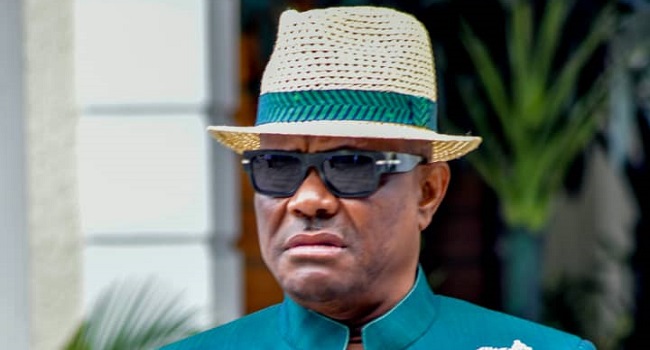A group of vulnerable residents of the Federal Capital Territory (FCT), including scavengers, beggars, and petty traders, has taken legal action against the Minister of the FCT, Nyesom Wike, seeking N500 million in damages for alleged violations of their fundamental human rights.
The lawsuit, filed by human rights lawyer Abba Hikima on behalf of the residents, alleges that recent actions by the minister and security forces have led to arbitrary arrests, harassment, and detentions of some of the most vulnerable members of society. The suit, marked FHC/ABJ/CS/1749/2024, was submitted before Justice James Omotosho at the Federal High Court in Abuja.
Hikima explained that the legal action was initiated to address the plight of citizens who often live on the margins of society, facing daily struggles for survival. According to him, the respondents include the Minister, the Inspector-General of Police, the Director-General of the Department of State Services, the Nigeria Security and Civil Defence Corps, the Attorney-General of the Federation, and the Federal Government.

The lawyer recounted witnessing a disturbing incident on the night of November 12, 2024. He said he observed security operatives forcefully arresting individuals perceived to be homeless, including hawkers, petty traders, and beggars, near Ahmadu Bello Way in Abuja. “These people were subjected to verbal harassment and physical threats in full view of passersby,” Hikima said, describing the scene as deeply unsettling.
He followed the convoy of security operatives to Eagle Square, where the detainees were reportedly held. Over the following days, he reached out to some of those affected, recording their stories to ensure they would have a voice in court. Among them were Abdullatif Shehu, Hajiya Talatu Danladi, and Judith Samuel, who recounted how they were apprehended while trying to earn a living or simply seeking shelter.

In the suit, Hikima is asking the court to declare that the treatment of these individuals is a violation of their constitutionally guaranteed rights, including the right to dignity, freedom of movement, and protection from discrimination. He also urged the court to order the respondents to issue a public apology and implement reforms to protect the rights of vulnerable Nigerians.
The legal action highlights the difficult realities faced by many in the FCT. “It is not a crime to be homeless or to engage in petty trading,” Hikima said, emphasizing that the conditions leading to such circumstances often stem from harsh government policies and systemic failures to provide adequate support for vulnerable citizens.
When the matter came before the court, it was revealed that while the Department of State Services had responded with a counter-affidavit, representatives for the minister, the police, and other government agencies were absent. Justice Omotosho adjourned the case to February 4, 2025, and directed that notices be served to all respondents.
For those involved, the case is not just about financial compensation but about accountability and recognition of their dignity as human beings.



